Music therapy is a panacea for the autistic children, reasons Alessandra, in the Special Feature. A Different Truths exclusive.
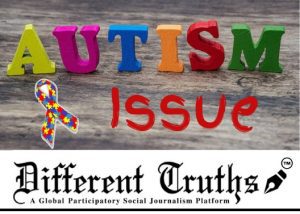 Autism or autistic problem is normally recognisable by the affects it has on the development of social, verbal and cognitive ability of an individual and it is usually identifiable by the age of three. It most likely affects the way that we communicate with the people around us. There may be similarities that exist between different cases of autism that are identified but it is difficult to find a sure shot way or any, specific sign or symptom to pinpoint a case.
Autism or autistic problem is normally recognisable by the affects it has on the development of social, verbal and cognitive ability of an individual and it is usually identifiable by the age of three. It most likely affects the way that we communicate with the people around us. There may be similarities that exist between different cases of autism that are identified but it is difficult to find a sure shot way or any, specific sign or symptom to pinpoint a case.
What is music therapy? And how it can greatly help not only those that are autistic but also their families, communities and their near and dear ones. It helps to understand and cope with the challenges that arise with those, who have autism. It greatly improves the communication skills, fine motor skills, social skills, sensory issues, behaviour, cognition, self- reliance and have a better understanding of how to act in a social situation.
Music therapy is a risk-free and well-established technique for using musical interaction to help individuals with a wide range of cognitive and emotional challenges to improve their ability to function.
Music therapy is a risk free and well-established technique for using musical interaction to help individuals with a wide range of cognitive and emotional challenges to improve their ability to function. At this point, before we continue further, it needs to be clarified that music therapy is not the same as musical instruction. These are two very different things.
One of the greater benefits of music therapy with children with autism is that classical music or any music with a steady rhythm can help alleviate anxiety as the beat is predictable. This helps autistic children, as they are more sensitive to anxiety than the average child, this is because it is not always possible for them to filter out provoking stimuli.
Whether autistic or not, we have all caught ourselves at one time or the other being captivated by a catchy tune or jingle. Music can lift our spirits and drag us out of our bad moods and have a positive effect on us and our lives. The same stands true in the case of music therapy for the autistic.
It is often noticed that when it is difficult to get the attention of an individual with nautistic problems, music pulls a positive response from them. It’s a great therapeutic tool. It further helps to cope with sound sensitivity as well for those with sensory aversions or individual differences in auditory processing.
Close to 30% of all autistic children have a difficult time with their social skills and awareness. They also have difficulty following verbal commands and can be non-verbal.
Close to 30% of all autistic children have a difficult time with their social skills and 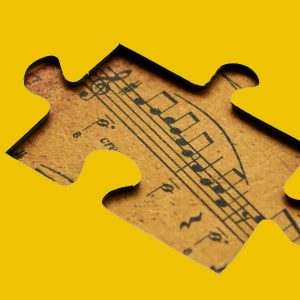 awareness. They also have difficulty following verbal commands and can be non-verbal. Repetitive training of pairing music with action helps in the improvement of mapping sounds to action by connecting auditory and motor sections of the brain. It helps to improve the understanding of verbal commands. It reinforces and improves the pathways of the brain needed to speak.
awareness. They also have difficulty following verbal commands and can be non-verbal. Repetitive training of pairing music with action helps in the improvement of mapping sounds to action by connecting auditory and motor sections of the brain. It helps to improve the understanding of verbal commands. It reinforces and improves the pathways of the brain needed to speak.
Since our interpretation of music is done by both music and sound it can help in handling and understanding social situations with the help of the messages that can be expressed in a song. It also helps in the improvement of communication. It is a known fact that autism can create barriers for children in a social setting and this is a great way to help cope with this issue. By incorporating a few dancing exercises with this form of therapy, it can also help stimulate our sensory system that enhances fine motor skills as well.
Music stimulates both our left and right brain, this means that it can help support cognitive activity, which helps build self-awareness as well as helps improve relationships.
Studies of early intervention have shown that through non-invasive games, musical activities and gentle play between parents and their autistic kids can create a very supportive environment for bonding in a healthy manner. Music therapy can help autistic children to relate to us and to the world around them. Family members, friends, and other near and dear ones can be invited to participate after acclimatisation with one on one session. Music stimulates both our left and right brain, this means that it can help support cognitive activity, which helps build self-awareness as well as helps improve relationships.
Here’s a fun fact, which is also food for thought. Amadeus Mozart, the famous composer and pianist, who started to delve into his chosen craft of music at the very tender age of four and was able to compose his own pieces by the age of six and had accomplished the task of writing his own symphonies by the age of eight, showed numerous signs of being autistic and this can be seen reflected even in his works.
Just because someone is autistic, it does not limit their horizons or that it defines them and labels them for life.
I am a great fan of music from around the world and truly believe that music is one of the languages of our souls. This leads me to believe that just because someone is autistic, it does not limit their horizons or that it defines them and labels them for life. I truly hope that through this autism awareness month, we can shed light on this truth and make people aware of the fact that being different isn’t a drawback. This truth can give us the strength and courage we need to deal with the challenges that autistic children might face in their journeys ahead.
Photos from the Internet

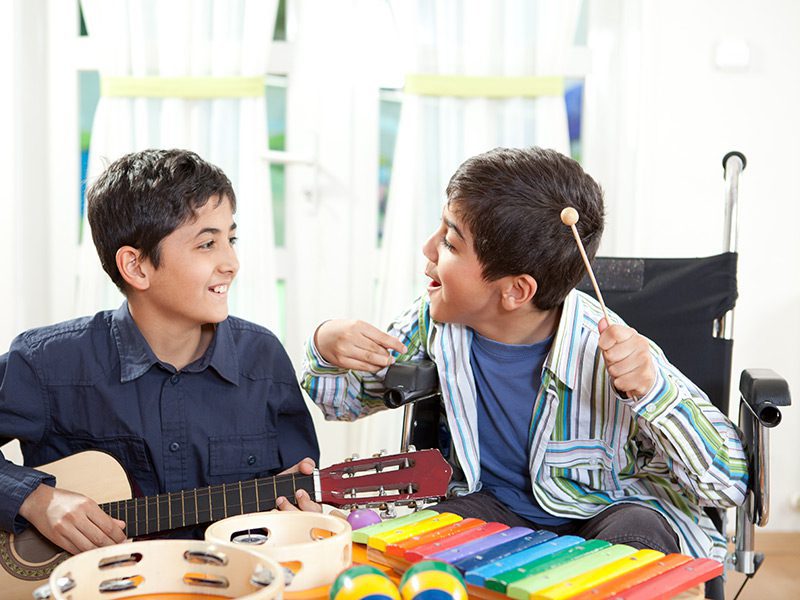
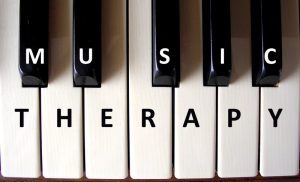

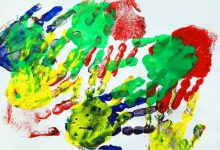

 By
By
 By
By
 By
By
 By
By
Very informative, well researched and thought provoking.Thanks for providing insights on Music Therapy.
Great person Allesandra Congratulations for your article I love Mythology Please read and Greek Mythology !!!!!!!!
Every one of us is born with music inside us. A baby develops in the womb listening to the heartbeats of the mother, which is a rhythm of life. The children suffering from autism struggle a lot to cope up with their surroundings and music therapy can definitely help them. A wonderful initiative by the author to have researched and written about this. This article should be shared widely, specially with parents of autistic children.
Interesting, informative, and thought-provoking.
Great article Alessandro. Congratulations !! Sure your message will reach the needy parents.
I’m well experienced with the same what you have suggested here, because I’ve a cousin brother with autism. His parents shaped him through music and now he is music teacher and he has institution as well. His name is Samuel Ashish Marcus, Ashirvad Music School hyderabad is his Institution. Thanks Alessandra
thank you so much Eftichia. I have read a lot of Greek Mythology, after all they are the classics. If you want me to write on any particular topic let me know i will try my best. Once again thanks for the comment and support.
At this very young age, you have written too good and very creative about music for the much more younger generation of today. Kudos to you.
Informative. Thanks for giving knowledge on Music Therapy.
Very interesting. Looking forward to reading more from you
Really an eye opener… never knew Music could help autistic kids.. Great article by Alessandra!!
It’s a very good article and very well written
Very informative, well expounded , will look forward to get out benefits from the knowledge you shared.
Very good article, well done!Congratulations and keep it going!
Keep up the great work, really useful info, I enjoy a lot reading about unexpected benefits of music, you should write one about sleep music